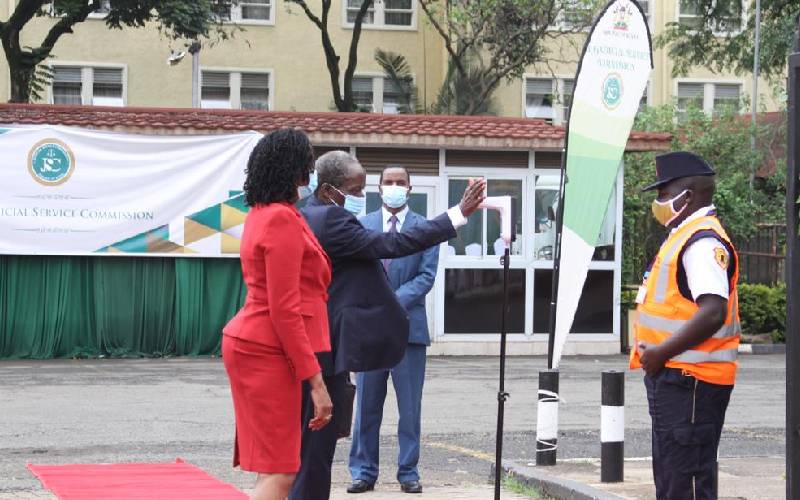×
The Standard e-Paper
Home To Bold Columnists

Justice David Njagi Marete arrives at the Supreme Court building to be interviewed for the position of Chief Justice.[Collins Kweyu, Standard]
Justice David Njagi Marete has dismissed claims that the Judiciary is under siege from external forces.